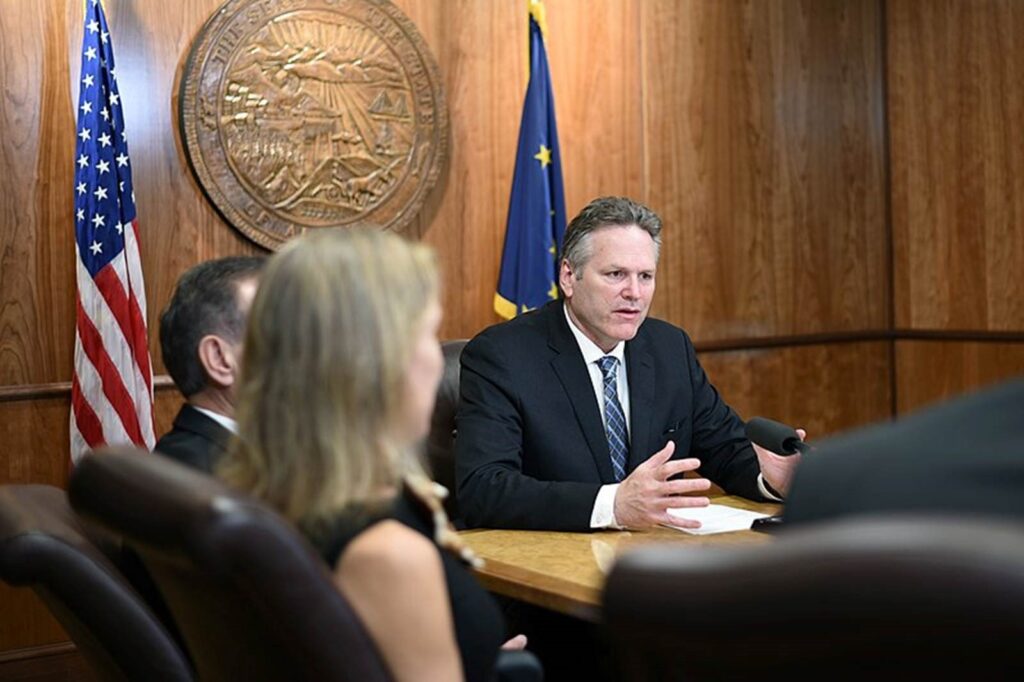Is This Any Way to Run a City’s Schools?
Leaked CTU Proposals Won’t Do Anything to Improve Schools’ Poor Performance

Top officers of the American Federation of State, County and Municipal Employees (AFSCME) know from personal experience that once government workers in state after state have a genuine free choice about whether or not they join or bankroll a union, many refuse to do either.
In June 2018, the U.S. Supreme Court issued a landmark ruling against the AFSCME union brass in Janus, a case argued and won by then-National Right to Work Legal Defense Foundation staff attorney and current Foundation Legal Director and Vice President Bill Messenger.
Janus recognized, for the first time, that forcing public servants to pay union dues or fees as a job condition violates the First Amendment. And from 2017 to 2022, the number of active workers nationwide paying money to the bosses of AFSCME and its affiliates plummeted by 16.3%!
Unfortunately, despite the High Court’s verdict and the manifest evidence that many public workers would prefer to be union-free, AFSCME and other union bosses have fought tooth and nail against any and all efforts by state governments to ensure workers can exercise their First Amendment rights under Janus.
Alaska is a dismaying case in point.
Shortly after Gov. Michael Dunleavy (R) was first inaugurated in 2019, his administration began an effort to directly inform employees of their Janus rights and ask for written consent if they wished to remain union members and keep paying dues.
The infuriated top bosses of the Alaska State Employees Association (AFSCME’s state affiliate) swiftly filed suit in state court, charging that this initiative violated the state’s Public Employment Relations Act (PERA).
After that, the Janus implementation effort was tied up in court. Finally, on May 26, the clubbish Alaska Supreme Court delighted government union bosses by ruling that the Dunleavy Administration’s modest measures to protect public employees’ First Amendment rights violate the PERA!
In response to the decision, Foundation Vice President Messenger stated: “If requiring that dues-deduction cards include language informing employees of their constitutional right not to bankroll a union violates the Alaska PERA, this statute violates the First Amendment.”
Before publication, this Newsletter reached out to Alaska Solicitor General Jessie Alloway, who confirmed that the governor will appeal to the U.S. Supreme Court what he considers to be an incorrect opinion by the Alaska Supreme Court.
The Foundation intends to file a brief in support of the governor’s stance.
Meanwhile, headway is being made in other states against public-sector union privileges that have too long been taken for granted.
Since early this year, four states — Arkansas, Florida, Kentucky, and Tennessee — have adopted measures that prohibit the automatic deduction of union dues or fees from employee paychecks by government entities going forward.
Along with several other citizens’ groups, the National Right to Work Committee supported all four measures, despite expressing concern about exemptions for police and certain other government union bosses.
As in Alaska, union bosses in Florida and Kentucky have already filed suit against the roll-back of their state-supplied perks.
Reflecting on these lawsuits, Committee Vice President John Kalb observed: “Any time public-sector union bosses lose a government privilege they’ve considered a ‘right,’ you can count on them inevitably to turn to the legal system to recoup the privilege, regardless of the merits.”
Fortunately for those supporting more freedom for individual employees, union lawyers in the Florida and Kentucky cases are on shaky legal ground, just as their counterparts are in the Alaska case.
As U.S. Appellate Judge Joel Flaum explained in a 2013 majority opinion, “use of a state’s payroll system is a state subsidy of speech” to which no private party is entitled, even if this perk is granted to other citizens or groups.
Bolstered by this precedent, the Committee and its members will continue to support legislative efforts to ensure civil servants nationwide are able to exercise without impediment their First Amendment rights under Janus.
This article was originally published in our monthly newsletter. Go here to access previous newsletter posts.
To support our cause and help end forced unionism, go here to donate.

Leaked CTU Proposals Won’t Do Anything to Improve Schools’ Poor Performance

Wherever Big Labor wields the power to collect forced union dues, union bosses funnel a large share of the confiscated money into efforts to elect and reelect business-bashing politicians. Employment growth tends to lag as a consequence.

Members Insist They Keep Pro-Right to Work Campaign Promises